Katrin Presslauer
Abschlussjahr 2022
„Digital Marketing Manager“ bei der Riffbird GmbH
An idea, a business model, financing – starting a company is very difficult. However, the real challenge lies in the long-term business success: this is based on ensuring sustainable profitable growth, one of the core tasks of successful corporate management.
In addition to its quantitative aspects, growth also has a qualitative component that is vital when improving the company’s performance. This is exactly the focus of the master’s degree program Business Development & Management: future business managers are trained here, and they can be characterized not only by “entrepreneurship”, but also by their abilities to develop and implement growth strategies for mature companies.
Winterterm 2025
Period I: 01.11.-15.03.2025
Period II: 16.03.-15.05.2025
Period III: 16.05.-15.07.2025
Period IV: 16.07.-30.09.2025*
For applicants from outside Europe applications are only accepted within Period I.
*We reserve the right not to open the period or to close it early!
The semester starts in October - we only offer intake in winterterm!
The start of lectures can be found in the individual timetable which is available after enrollment.
Wed and Thu from 16.50 h - Online
3 Fridays per month from 13.30 h (on Campus)
One week on campus at the beginning of every semester
Study Guidance
Book your personal appointment right now!
You can find out more about our advisory services, events and fairs on our website.
Language of Instruction: German
Minimum of B2, stated by either
-DAF ("Deutsch als Fremdsprache)
-ÖSD ("Österreichisches Sprachdiplom Deutsch)
-GOETHE Sprachinstitut
Admission requirements:
Please note that foreign educational documents in some cases need to be legalized as well as translated in order to apply. More information can be found in our official application guideline
In den Online-Infosessions stellt Ihnen der Programmleiter das Studium detailliert vor. Sie erhalten wertvolle Informationen zu Studieninhalt, Praktika, den Aufnahmevoraussetzungen und den vielfältigen Karrieremöglichkeiten.
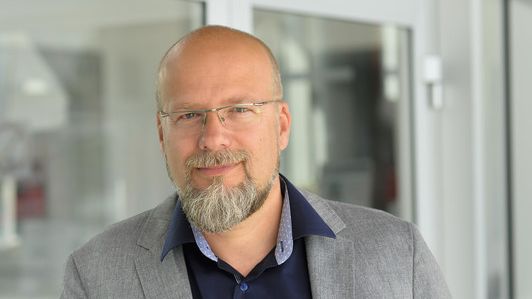
FH-Prof. Dr. Alexander Schwarz-Musch
Studiengangsleitung
Business Developer*innen brauchen ein gutes Verständnis für aktuelle Entwicklungen (z.B. im Bereich der Nachhaltigkeit und Digitalisierung) und Know-how in unterschiedlichen Bereichen (u.a. Strategisches Management, Marketing, Controlling, Organisation). Diese Kompetenzen erwerben Sie im Studium und sind damit optimal für Einstiegspositionen im Business Development vorbereitet.
Vielleicht sind Sie sich zum jetzigen Zeitpunkt aber noch nicht sicher, ob Sie diesen Karriereweg einschlagen möchten? Ihre Interessen liegen auch in anderen Bereichen? Hier kommt ein ganz zentraler Vorteil unseres Curriculums zum Zug: Wir nutzen die Vielfalt und Interdisziplinarität des Business Developments für Lernpfade, mit denen Sie Ihr ganz persönliches Kompetenzprofil aufbauen können.
Please contact us if you have any questions about your studies:
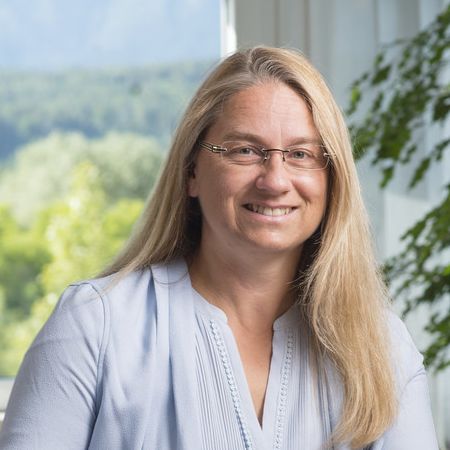
Evelyn Eigner
Administration of Studies
FH-Prof. Dr. Alexander Schwarz-Musch
In den ersten drei Semestern des Studiums sind jeweils 6 Module im Umfang von je 5 ECTS zu absolvieren. Das vierte Semester ist schwerpunktmäßig für die Masterthesis (22 ECTS) und Abschlussprüfung (3 ECTS) reserviert, zusätzlich wird hier das Modul „Business Development Managment Simulation“ angeboten. Im vierten Semester kann auch das optionale Auslandssemester absolviert werden.
Die Module sind inhaltlich zu 6 Schwerpunktthemen zusammengefasst:
1. Strategisches Business Development (4 Module, 20 ECTS)
2. Nachhaltigkeit im Business Development (3 Module, 15 ECTS)
3. Business Development Opportunities (3 Module, 15 ECTS)
4. Tools im Business Development (6 Module, 30 ECTS)
5. Spezialisisierungen (1 Pflichtmodul und 4 Wahlmodule, aus denen 2 zu wählen sind, d.h. 15 ECTS)
6. Personal Development Journey (in Verbindung mit den Modulen des Schwerpunkts Markenmanagement & Zukunftsfähige Organisationen, 3 ECTS)
Das Masterstudium „Business Development & Management“ ist darauf ausgerichtet, Sie optimal für Einstiegspositionen im Business Development vorzubereiten. Dabei geht es immer um Antworten auf zwei zentrale Fragen, vor denen alle Unternehmen stehen:
Dafür braucht es geeignete Wachstums- und Entwicklungsstrategien, die aktuelle Trends und Entwicklungen aufgreifen und für das Unternehmen nutzbar machen.
Entsprechend vielfältig sind die Anforderungen an Business Developer*innen. Auf der Marktseite geht es darum, die entsprechenden Geschäftspotenziale zu identifizieren und Strategien für die Marktbearbeitung zu entwickeln und umzusetzen. Die Erschließung dieser Potenziale erfordert häufig die Entwicklung neuer Produkte, Prozesse und Geschäftsmodelle. Hierfür müssen unternehmensintern die notwendigen Voraussetzungen geschaffen werden. Damit sind Fragen der Organisationsentwicklung und des HR-Managements ebenso angesprochen, wie Aufgaben der Finanzierung, des Controllings und Innovationsmanagements.
Das Masterstudium ist aber auch eine ideale Vertiefung für all jene, die in einem der folgenden Bereiche ihr persönliches Kompetenzprofil aufbauen möchten:
Aufbauend auf den Grundlagen, die in einem Bachelorstudium Wirtschaft vermittelt werden, haben wir entsprechende Lernpfade entwickelt. Damit erwerben Sie fundiert und praxisnahe jenes Know-how, um in einem dieser Bereiche durchzustarten.
What students should bring to their studies:
Admission to the master's degree program in Business Development & Management requires the completion of a relevant bachelor's or diploma degree or an equivalent course of study at a recognised domestic or foreign post-secondary educational institution.
After successful completion of their studies, graduates have the following skills and knowledge:
Business Development AND Sustainability
With the career-friendly master's degree in Business Development & Management, students acquire the skills and competencies to design, coordinate and implement entrepreneurial development and growth strategies. In any entrepreneurial development it is also of particular importance to deal with the topic of sustainability already within the strategic planning process. This requirement was already recognised in the development phase of the Master's programme, which was first launched in 2015, and was also anchored in the curriculum through a mandatory sustainability module.
The mandatory sustainability module comprises a total of 3 courses with a total of 9 ECTS credits. In the first semester, the content ranges from sustainable management and the climate debate to focus topics in the area of corporate social responsibility and the fields of corporate responsibility. In the course "Qualitative Corporate Growth", which builds on this, the focus is on strategies with which companies can strengthen their competitiveness beyond a growth in size. In the concluding "In-depth and practical seminar on sustainability", special topics of sustainable corporate management such as the organisational embedding of CSR measures and CSR communication and reporting are dealt with. A further focus is on different approaches to problem solving, such as the global framework for sustainability (Sustainability Development Goals), the United Nations Global Compact (UN) or the OECD Guidelines for Multinational Enterprises.
After the importance of the topic area and the interest of the students has increased more and more in the recent past, the next logical step was taken and sustainability as a topic area was also integrated into the Master Thesis Seminar. The number of Master's theses with a focus on sustainability and sustainability related topics shows that this step was positively received. Examples of such topics are: "Trends and sustainable packaging concepts in the consumer goods market", "Establishment of digital communication concepts using the example of the sustainability economy", "Cooperation as a possibility for the sustainable marketing of organically produced food", "Social sustainability in the context of mobile home nursing - alternative organisational models to strengthen social sustainability", "CSR reporting obligation in the EU and effects on Austrian companies" or "Benefit effects of the environmental management system and CSR reporting in Austrian hospitals".
The combination of entrepreneurial and socio-political considerations, practical examples of application and the possibility of further in-depth study within the framework of the Master's thesis shows two relevant results: Students show a growing interest in the topic of sustainability, and as a result their understanding of the different facets of sustainable corporate development and the resulting opportunities for companies grows.
By anchoring the sustainability module in the curriculum, future managers learn how to use resources sparingly as part of their training and develop into graduates who are aware of their responsibility regarding their biological footprint.
| Lecture | Type | SPPS | ECTS-Credits | Course number |
|---|---|---|---|---|
| Business Development Controlling | ILV | 3,0 | 5,0 | M4.07740.10.050 |
| Business Development Roadmap | ILV | 3,0 | 5,0 | M4.07740.10.010 |
| Development of Organisation & Culture | ILV | 3,0 | 4,0 | M4.07740.10.060 |
| Economic Aspects of Growth | ILV | 3,0 | 5,0 | M4.07740.10.031 |
| Grundlagen der Nachhaltigkeit | ILV | 3,0 | 5,0 | M4.07740.10.020 |
| Market & Customer Insights | ILV | 3,0 | 5,0 | M4.07740.10.040 |
| Personal Development Journey - Teil 1: Potenziale erkennen | ILV | 1,0 | 1,0 | M4.07740.10.070 |
| Lecture | Type | SPPS | ECTS-Credits | Course number |
|---|---|---|---|---|
| Business Development Project - Value Creation Concept and Development of Business Plans Group A | PT | 4,0 | 7,0 | M4.07740.30.000 |
| Business Development Project - Value Creation Concept and Development of Business Plans Group B | PT | 4,0 | 7,0 | M4.07740.30.000 |
| Behavioral and Psychological Foundations of Decision Making | ILV | 2,0 | 2,0 | M4.07740.30.050 |
| European Business Law | ILV | 1,0 | 2,0 | M4.07740.30.010 |
| Master Thesis Seminar Group A | ILV | 2,0 | 2,0 | M4.07740.30.060 |
| Master Thesis Seminar Group B | ILV | 2,0 | 2,0 | M4.07740.30.060 |
| Specialisation Seminar Information Society | SE | 2,0 | 3,0 | M4.07740.30.040 |
| Specialisation Seminar Sustainability | SE | 2,0 | 3,0 | M4.07740.30.030 |
| Specialisation Seminar Regionality | SE | 2,0 | 3,0 | M4.07740.30.020 |
| Specialization Area: Marketing | Type | SPPS | ECTS-Credits | Course number |
| Sales Management | ILV | 2,0 | 4,0 | M4.07741.30.080 |
| Strategic Brand Management | ILV | 2,0 | 4,0 | M4.07741.30.070 |
| Specialization Area: Organization | Type | SPPS | ECTS-Credits | Course number |
| Change Management | ILV | 2,0 | 4,0 | M4.07742.30.090 |
| Methods of Knowledge Management | ILV | 2,0 | 4,0 | M4.07742.30.100 |
| Lecture | Type | SPPS | ECTS-Credits | Course number |
|---|---|---|---|---|
| Agiles Mindset & Methoden | ILV | 3,0 | 5,0 | M4.07740.20.120 |
| Business Development Analytics | ILV | 3,0 | 5,0 | M4.07740.20.110 |
| Business Model Innovation | ILV | 3,0 | 5,0 | M4.07740.20.080 |
| Digitale Plattformökonomie | ILV | 3,0 | 5,0 | M4.07740.20.100 |
| Personal Development Journey - Teil 2: Purpose definieren | ILV | 1,0 | 1,0 | M4.07740.20.150 |
| Qualitatives Unternehmenswachstum und nachhaltige Führung | ILV | 3,0 | 5,0 | M4.07740.30.170 |
| Compulsory optional subject: Wahlmodul | Type | SPPS | ECTS-Credits | Course number |
| Brand Lab - Disruptive & Strategic Thinking (Wahlmodul) | ILV | 3,0 | 4,0 | M4.07740.20.131 |
| Kompetenz-, Lern- und Wissensmanagement (Wahlmodul) | ILV | 3,0 | 4,0 | M4.07740.20.140 |
| Lecture | Type | SPPS | ECTS-Credits | Course number |
|---|---|---|---|---|
| Business Development and Management Simulation | PT | 2,0 | 2,0 | M4.07740.40.000 |
| Master Exam | DP | 0,0 | 3,0 | M4.07740.40.040 |
| Master Thesis | MT | 0,0 | 21,0 | M4.07740.40.030 |
| Personal Development Program | ILV | 2,0 | 2,0 | M4.07740.40.020 |
| Research Forum | ILV | 2,0 | 2,0 | M4.07740.40.010 |
| Lecture | Type | SPPS | ECTS-Credits | Course number |
|---|---|---|---|---|
| Business Development Controlling | ILV | 3,0 | 5,0 | M4.07740.10.050 |
| Business Development Roadmap | ILV | 3,0 | 5,0 | M4.07740.10.010 |
| Development of Organisation & Culture | ILV | 3,0 | 4,0 | M4.07740.10.060 |
| Economic Aspects of Growth | ILV | 3,0 | 5,0 | M4.07740.10.031 |
| Grundlagen der Nachhaltigkeit | ILV | 3,0 | 5,0 | M4.07740.10.020 |
| Market & Customer Insights | ILV | 3,0 | 5,0 | M4.07740.10.040 |
| Personal Development Journey - Teil 1: Potenziale erkennen | ILV | 1,0 | 1,0 | M4.07740.10.070 |
| Lecture | Type | SPPS | ECTS-Credits | Course number |
|---|---|---|---|---|
| Business Development Praxisprojekt | ILV | 3,0 | 5,0 | M4.07740.30.160 |
| Cooperating across Borders | ILV | 2,0 | 4,0 | M4.07740.30.181 |
| European Business Law | ILV | 1,0 | 1,0 | M4.07740.30.191 |
| Finanzierung & Businessplanerstellung | ILV | 3,0 | 5,0 | M4.07740.30.210 |
| Personal Development Journey - Teil 3: Rahmenbedingungen gestalten | ILV | 1,0 | 1,0 | M4.07740.30.240 |
| Product Lifecycle Management | ILV | 3,0 | 5,0 | M4.07740.20.091 |
| Research Methods - Masterthesis Seminar | ILV | 3,0 | 5,0 | M4.07740.30.201 |
| Compulsory optional subject: Wahlmodul | Type | SPPS | ECTS-Credits | Course number |
| Brand Lab - Brand Dimensions & Architecture (Wahlmodul) | ILV | 3,0 | 4,0 | M4.07740.30.221 |
| Mindset & Leadership (Wahlmodul) | ILV | 3,0 | 4,0 | M4.07740.30.230 |
| Lecture | Type | SPPS | ECTS-Credits | Course number |
|---|---|---|---|---|
| Agiles Mindset & Methoden | ILV | 3,0 | 5,0 | M4.07740.20.120 |
| Business Development Analytics | ILV | 3,0 | 5,0 | M4.07740.20.110 |
| Business Model Innovation | ILV | 3,0 | 5,0 | M4.07740.20.080 |
| Digitale Plattformökonomie | ILV | 3,0 | 5,0 | M4.07740.20.100 |
| Personal Development Journey - Teil 2: Purpose definieren | ILV | 1,0 | 1,0 | M4.07740.20.150 |
| Qualitatives Unternehmenswachstum und nachhaltige Führung | ILV | 3,0 | 5,0 | M4.07740.30.170 |
| Compulsory optional subject: Wahlmodul | Type | SPPS | ECTS-Credits | Course number |
| Brand Lab - Disruptive & Strategic Thinking (Wahlmodul) | ILV | 3,0 | 4,0 | M4.07740.20.131 |
| Kompetenz-, Lern- und Wissensmanagement (Wahlmodul) | ILV | 3,0 | 4,0 | M4.07740.20.140 |
| Lecture | Type | SPPS | ECTS-Credits | Course number |
|---|---|---|---|---|
| Business Development Management Simulation | ILV | 3,0 | 5,0 | M4.07740.40.250 |
| Masterprüfung | ME | 0,0 | 3,0 | M4.07740.40.270 |
| Masterthesis | MT | 0,0 | 22,0 | M4.07740.40.260 |
What do the following tasks have in common? Identifying business ideas and growth opportunities; developing new target groups, distribution channels and markets; adapting existing business models to a changed environment (keyword digitization) and developing new business models. All these tasks have a high innovative character, affect every company that wants to be successful in the long term - and are among the core tasks of business development. Business developers require extensive technical expertise from various areas - skills that represent a combination of industry know-how, product and market knowledge, an understanding of customer needs, business processes and strategic planning.
Graduates of the Master's program have a wide range of career opportunities, including
Der erfolgreiche Abschluss des Masterstudiums Business Development & Management berechtigt in weiterer Folge zu einem Doktoratsstudium gemäß § 6 FHStG (4).
„ Das Studium Business Development & Management empfehle ich weiter, weil es einerseits - durch die sehr guten nebenberuflichen Lehrenden (bzw. Gast-Vortragenden) - geschickt Theorie und Praxis verbindet und andererseits, weil es sich durch seine Interdisziplinarität (Strategie, HR, Controlling, Marketing, etc.) deutlich von vielen anderen Masterstudien abhebt
Alexander Haslinger, BA MA
Absolvent
Talent Attraction Manager, Infineon Austria
"Ich weiß vor allem die Individualität und großartige fachliche Beratung sehr zu schätzen. Zusätzlich sehe ich die langjährige Berufserfahrung der Vortragenden als sehr großen Einflussfaktor, der es den Studierenden ermöglicht nicht nur Fragen zu den theoretischen Konzepten zu stellen, sondern die Tür ebenso für „On Job“ – Fragen offen lässt. Ich empfehle den Studiengang Business Development & Management in meinem Freundeskreis mit Freude weiter."
Andreas Napokoj
Studierender
Business Development & Management Master
"Meiner Meinung nach adressiert das Masterstudium Business Development & Management eine der zentralen Herausforderungen der Gegenwart, nämlich das zielgerichtete Weiterentwickeln von Unternehmen und Organisationen sowie deren Führung. Der breitgefächerte Studienplan ermöglicht einen umfassenden Überblick, an welchen Stellschrauben im Unternehmen gedreht werden kann und welchen Einfluss dies auf andere Bereiche mit sich bringt."
Ing. André Plankensteiner, MA
Absolvent
Line Manager bei Infineon Technolgies Austria AG
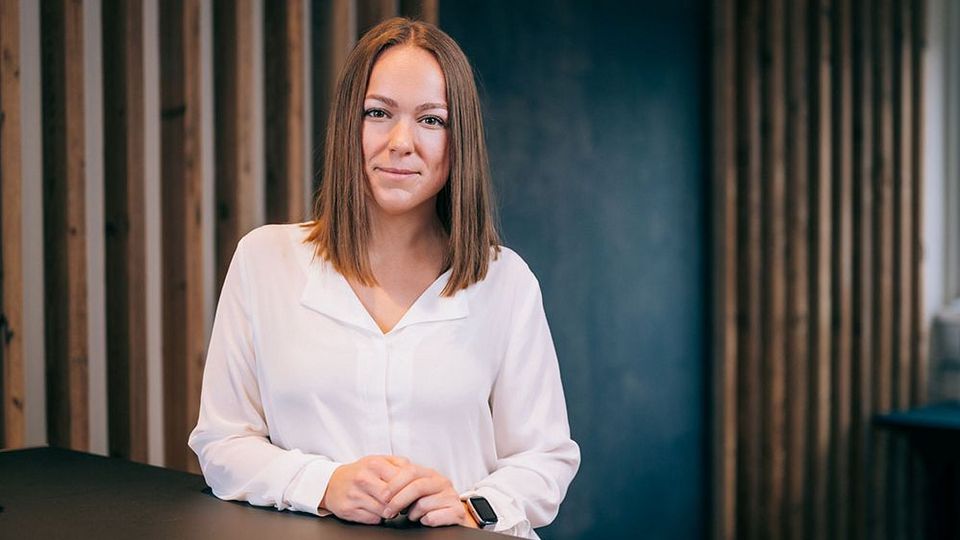
Abschlussjahr 2022
„Digital Marketing Manager“ bei der Riffbird GmbH
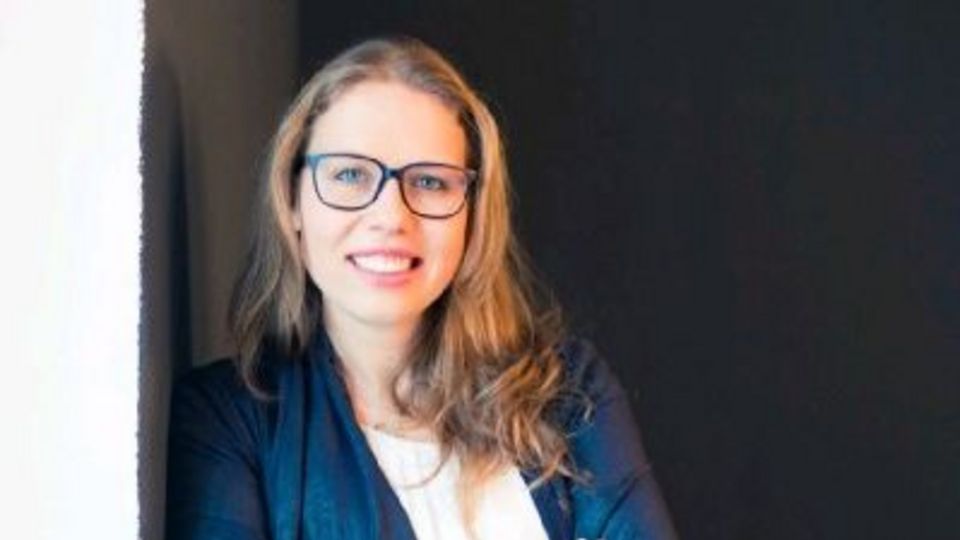
Abschlussjahr: 2020
Bereichsleitung im Fachbereich Menschen im Alter bei Diakonie de La Tour

Abschlussjahr: 2021
Assistentin Beschaffung bei Aldi Süd
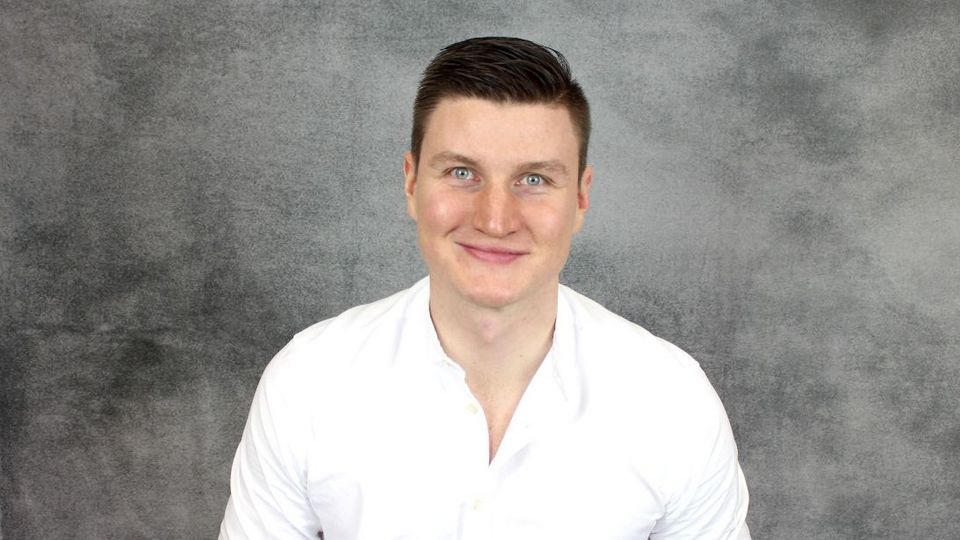
Abschlussjahr: 2020
Geschäftsführung – Elektro Lackner GmbH
FH-Prof. Mag. Dr.
Alexander Schwarz-MuschFH-Prof. Mag. Dr.
Alexander SitterFH-Prof.in Mag.a Dr.in
Ursula LiebhartFH-Prof. Dr.
Wolfgang EixelsbergerFH-Prof. Dr.
Dietmar BrodelFH-Prof.in Dr.in
Eithne KnappitschMag.
Wolfgang LeitnerFH-Prof. MMag. Dr.
Florian OppitzFH-Prof.in Mag. (FH) Dr.in
Birgit Aigner-WalderFH-Prof.in Mag.a
Hermine BauerMag.
Helmut Georg BliemMMag.a
Sabine FriesserMag. Dr.
Thomas HöllwegerIng.
Martin Kompan, MBAMag.a Dr.in rer. soc. oec.
Iris StraßerThe Villach region combines tradition, cosmopolitanism and quality of life with the advantages of an innovative business location. Villach, a small town with about 60,000 inhabitants, is an international high-tech location with groundbreaking cooperation between science and industry and is also increasingly developing into a start-up town.
Situated directly at the intersection of three cultures, Villach, situated on the Drava river, is an important traffic junction in the Alps-Adriatic region. This special geographical location and the beautiful landscape around Villach and in the federal state of Carinthia have made the region a popular holiday destination for generations, further beyond the borders. The drinking water quality of the lakes and the particularly clean air make Villach and its surroundings an environmental paradise.
In addition to its geographical advantages, Austria also leads the world in terms of its social and health care system and is considered a particularly safe, prosperous and liveable country.
Despite the above-average prosperity and the comprehensive state social benefits, Villach compares favourably with many international destinations. The "small town bonus" comes into its own here and makes everyday life affordable.
Explore Campus Villach on a 360° Tour.
Make a virtual walk through the Science & Energy Labs – T10.
Motorway exit Wernberg, then on the B 83 approx. 2 km in the direction of Villach, after the Villach town sign the B83 passes under the A2 motorway, and then immediately right the first exit in the direction of MAGDALENEN SEE. Following the signs for Magdalenen See, the road leads through a small wooded area, always follow the road, after an S-curve past Magdalenen See (left) always straight ahead, cross the southern railway line and go uphill directly into the centre of St. Magdalene. Turn right at the top of the hill, down the road, the grounds of the technology park are already visible to the south, the chimney of the combined heat and power plant, and directly in the sharp right-hand bend turn left onto the grounds of the technology park.
Motorway exit Villach/Ossiacher See, then approx. 2 km in the direction of Villach, on the right is Gasthof Seehof, on the left is Lake Vassach, continue on the B33 left in the direction of east, Wernberg, Klagenfurt, always follow the B33, after approx. 4 km turn right in the direction of Magdalenen See. The road leads through a small forest, always follow the road, after an S-curve past Lake Magdalenen (left) always straight ahead, cross the southern railway line and go uphill directly into the centre of St.Magdalen. Turn right at the top of the hill, down the road, the grounds of the technology park are already visible to the south, the chimney of the combined heat and power plant, and directly in the sharp right-hand bend turn left onto the grounds of the technology park.
The bus company Dr. Richard runs from Villach city to the FH in about every 15 minutes. The timetables are coordinated with the timetables of the ÖBB.
Europastraße 4
9524 Villach, Austria
+43 5 90500 7700
villach[at]fh-kaernten[dot]at
Explore Campus Villach on a 360° Tour.
In order to be admitted into a bachelor degree program at the Carinthia University of Applied Sciences at least one of the following criteria must be fulfilled:
Moreover, there are degree program specific additional prerequisites as well as more comprehensive information regarding admissions on the individual web pages of the corresponding degree program. The German University of Applied Sciences (Fachhochschule) entrance qualification certificate is only valid as an admission prerequisite for an Austrian UAS/FH bachelor degree program when combined with an applicable vocational certificate.
Persons in their last year of school may apply for a study place in a bachelor degree program before taking their secondary school-leaving exams by submitting their most current secondary school grade/marks report. The secondary school-leaving certificate must be submitted during the registration process at the beginning of the semester.
In order to be admitted into a master degree program at the Carinthia University of Applied Sciences at least one of the following criteria must be fulfilled:
Persons in their last semester of their bachelor degree programs may apply for a study place in a master degree program by submitting their most current transcript of records. The completion of the bachelor degree program certificates must be submitted during the registration process at the beginning of the semester.
####ContentToReplace####
Before enrolment in a degree program at the Carinthia University of Applied Sciences, a learning agreement is concluded between the prospective student and the Carinthia University of Applied Sciences.
This contract defines the rights and obligations of the student and the Carinthia University of Applied Sciences.
The rights and obligations of the student at a glance:
The learning agreement is sent electronically to applicants who have been accepted onto a degree program. In addition to the electronic consent to the learning agreement, the timely payment of the tuition fee and the Austrian Students´ Union fee is a prerequisite for admission to the degree program.
Significant legislative basis for a UAS degree program in Austria can be found here:
FHG - Federal Act on University of Applied Sciences Degree Programs (in German only)
HS-QSG - Act on Quality Assurance in Higher Education
Regarding the accreditation of previously gained academic knowledge through courses and/or exams taken at other institutions of higher education, the respective degree program administration/director will use the principle of ‘course per course relevant accreditation.
The equivalency of the previously taken courses in terms of content and scope to the offered courses in the degree program will be determined by the degree program administrator/director. If an equivalency is determined to exist, then those courses passed with positive marks/grades will be recognized and accredited. Additional examination of academic knowledge in these cases is not foreseen.
Specialized knowledge and relevant experiences acquired through professional and on-the-job experience may also be considered for accreditation for relevant courses. In cases of accrediting professional experience for course credits, additional examinations may be carried out if applicable.
Applications for accreditation are to be submitted directly to the Program Director no later than the start date of the relevant study course(s).
The student must decide where s/he will spend the semester abroad (i.e., a partner university) and will need to coordinate with the responsible Departmental International Coordinator concerning the necessary requirements.
Before the student spends the semester abroad, s/he is required to submit a completed Learning Agreement. This document contains all the courses the student will take abroad and will be recognized at CUAS once s/he finishes the courses successfully. The courses should correspond as much as possible to the courses offered in the curriculum of the student’s CUAS study program in the relevant semester in content and semester hours. It is highly recommended to students to take 30 ECTS credits abroad.
The Learning Agreement is signed and approved by the individual student, the host institution and the program director of the study degree program or a designated faculty member at CUAS.
The Learning Agreement is a declaration of the courses which are to be taken abroad and is not valid as an official recognition document by Austrian law. Therefore, the document is to be linked to the official document “Antrag auf Anerkennung / Application for Accreditation” for academic studies abroad.
During the first four weeks of the study abroad semester the student is allowed to change the Learning Agreement. For example, previously selected courses do not take place or overlap. The host institution and CUAS must agree upon the courses to be changed. If this is approved, the changes must be listed separately on the Learning Agreement (section “Changes to the original Learning Agreement). Afterwards the document is signed and approved by the individual students, the host institution and the program director of the study degree program or a designated faculty member at CUAS.
After the semester abroad the courses taken abroad will be recognized at CUAS. Therefore, the original Transcript of Records from the host institution and the legally valid document “Antrag auf Anerkennung / Application of Accreditation” (which is linked to the Learning Agreement) are obligatory. The student lists on the document the successfully finished courses abroad. After the recognition process is positively completed, the CUAS Transcript of Records will contain those courses.
In cases where the semester abroad is not completed successfully, the Departmental Coordinator and program director of the relevant study degree program will determine on an individual basis if and what courses will be accredited and what a student can do to make up those missing credits which were not accredited.
Detailed information about a semester abroad
For further questions please contact the International Relations Office.
Degree programs at University of Applied Sciences fundamentally only offer a limited number of study places.
In the framework of the application process each applicant will carry out an interview which will influence the allocation of the study places. Additionally, specific degree study programs may require written application tests as well as content-specific/technical aptitude tests. Detailed information regarding the degree program specific application requirements are provided on the degree programs’ web pages.
Repetitive applications for a study place at the same study degree program (e.g., in the following year) is generally allowed; however, the entire application process will start anew and candidates must resubmit all documents and carry out all steps again.
Carinthia University of Applied Sciences reserves the right to levy a surety of EUR 363.36 from the applicant in case of doubt on the authenticity or correctness as regards content of the documents proving the fulfillment of the admission requirements or in case that the documents are not sufficient for a decision on the fulfillment of the admission requirements in accordance with § 4 para. 5a FHG. This surety will be reimbursed to the applicant if the review has proved the authenticity and the correctness of the documents and the fulfillment of the admission requirements.
####ContentToReplace####
Detailed information about application deadlines can be found at the websites of the respective degree programs!
Carinthia University of Applied Sciences accepts both exchange students from partner institutions and so-called ‘Free Mover’ students. The decision to accept Free Movers is made on an individual basis by the relevant Degree Program Director. In the first case an official nomination (via e-mail) from the partner institution is necessary. After the nomination the student will be provided information regarding the application procedure.
Free Movers may apply directly.
Detailed information and deadlines
In order to register as a student at CUAS, each student must fulfill the following:
The enrollment periods for each degree program will be announced in advance to all applicants.
The examination regulations are an integral part of the education contract between the student and Carinthia University of Applied Sciences. It is also available to students and lecturers on the intranet.
Exams are graded according to the FHG [Federal Act on University of Applied Sciences Degree Programs]) § 17 (1), in the Austrian Grading System:
Austrian grading scheme | Definition |
1 | EXCELLENT: |
2 | GOOD: |
3 | SATISFACTORY: |
4 | SUFFICIENT: |
Successfully completed | Positive Leistung, wo eine genaue Differenzierung nicht tunlich ist. |
5 | UNSATISFACTORY: |
Not completed | Negative performance, where a strict differentiation is not adequate |
Recognised | Transfer credits for courses with equivalent learning outcomes |
The final bachelor's and master's examinations before a committee are graded according to FHG (Federal Act on University of Applied Sciences Degree Programs) § 17 (2) in the following grading scale:
In applying this grading system, it has to be noted that the grades “Pass with merit” and “Pass with distinction” are reserved exclusively for an examination performance clearly exceeding the level of performance required to pass these final exams.
Please note: This part of the Website is only available in German.
Die Nostrifizierung ist die Anerkennung eines ausländischen Studienabschlusses (Ausbildung im tertiären Bereich/an Hochschule/Universität) als gleichwertig mit dem Abschluss des inländischen Bachelor- bzw. Masterstudiums an der FH Kärnten. Die Nostrifizierung an der FH Kärnten kann nur erfolgen, wenn ein mit dem ausländischen Studienabschluss gleichwertiger Studiengang an der FH Kärnten eingerichtet ist und sofern die Nostrifizierung zwingend für die Berufsausübung in Österreich notwendig ist (z.B. reglementierter Beruf). Ein nostrifizierter akademischer Grad entfaltet dieselben Rechtswirkungen wie ein im Inland erworbener akademischer Grad.
Innerhalb der Europäischen Union (EU) bzw. des Europäischen Wirtschaftsraumes (EWR) ist eine Nostrifizierung nicht zwingend erforderlich und daher auch nicht möglich. Die Anerkennungsentscheidung von europäischen Ausbildungen in einem reglementierten Beruf (z.B. im Bereich der medizinisch-technischen Dienste, Hebammen und Gesundheits- und Krankenpflege) erfolgt in Österreich durch die zuständige Behörde (das für Gesundheit zuständige Ministerium bzw. Landesregierungen).
Auszug aus: nostrifizierung.at
Nostrifizierungsansuchen können nur für Studienabschlüsse eingebracht werden, welche mit dem Studienangebot der FachhochschuleKärnten übereinstimmen.
Die Nostrifizierung ist ein Verwaltungsverfahren an einer Universität bzw. Fachhochschule, die an bestimmte Voraussetzungen gebunden ist.
Der/Die Antragsteller/in muss nachweisen, dass die Nostrifizierung für seine/ihre angestrebte Tätigkeit in Österreich eine zwingende (siehe: „Was ist vorzulegen?“) Voraussetzung ist. In allen anderen Fällen obliegt die Bewertung des ausländischen Studiums ohnehin dem/der Arbeit- oder Dienstgeber/in.
Die Nostrifizierung kann an jeder Universität bzw. Fachhochschule, an der ein vergleichbares österreichisches Studium eingerichtet ist, beantragt werden. In vielen Fällen kommen daher mehrere Universitäten bzw. Fachhochschulen in Betracht. An welcher davon der/die Antragsteller/in in einem solchen Fall das Verfahren beantragt, bleibt seiner/ihrer Wahl überlassen. Der gleiche Nostrifizierungsantrag kann jedoch nur an einer Hochschule eingebracht werden.
Siehe: Notwendige Anlagen zum Antrag auf Nostrifizierung
Die Nostrifizierungstaxe beträgt derzeit EUR 150,00 und ist im Voraus zu entrichten. Dazu kommen Gebühren und Verwaltungsabgaben. Mehr Informationen unter Anlagen zur Nostrifizierung.
Kriterien der Überprüfung sind Inhalte, Umfang und Anforderungen desjenigen österreichischen Studiums, mit dessen Abschluss die Gleichwertigkeit beantragt wird. Wenn einzelne Voraussetzungen nicht zutreffen, können diese als außerordentliche/r Studierende/r absolviert werden. Sämtliche Bedingungen werden mit Bescheid vorgeschrieben. Wenn der/die Antragsteller/in alle zusätzlichen Bedingungen erfüllt hat oder wenn keine Bedingungen vorgeschrieben wurden, stellt die zuständige Stelle die Nostrifizierung fest.
..., weil die Unterschiede zum österreichischen Studium zu groß sind, kann um Zulassung zum österreichischen Studium angesucht und nach erfolgter Zulassung die Anerkennung von Prüfungen aus dem ausländischen Studium, soweit sie den österreichischen gleichwertig sind, erfolgen. Danach kann das österreichische Studium fortgesetzt und abgeschlossen werden.
Auszug aus: Wie-Verläuft-eine-Nostrifizierung
The European Credit Transfer and Accumulation System (ECTS) is a student-oriented system to accumulate and transfer different study credits.
The ECTS is one of the main characteristics of the Bologna Process and is used within the European tertiary system to allow universities and other institutes of higher education to recognize and accredit students’ previous post-secondary coursework. Moreover, this allows students to accumulate credits from different institutions as well ensure that their tertiary degrees are recognized internationally. Thus, the ECTS-system regulates not only student mobility within Europe but also the admission to institutes for further studies.
The system is based upon the transparency of defined learning outcomes and learning processes. The acquisition of experience and knowledge is made transparent through the defined learning outcomes in the course description, the corresponding curriculum module and the degree program’s entire curriculum; this significantly contributes to quality assurance.
ETCS credits are calculated based upon a student’s workload, which in normal cases is necessary to pass a course successfully.
The learning outcomes describe what students should know, understand and be able to do after the successful completion of a learning process. The work load defines the amount of time typically necessary for all learning activities (e.g., lectures, seminars, projects, lab exercises, self-study, exams) in order to achieve the expected learning outcomes.
Within the European tertiary system, a semester is assessed to have 30 ECTS credits and an academic year 60 ECTS credits. The workload for an academic year ranges between 1.500 and 1.800 hours. In Austria, one ECTS credit is equivalent to a workload of 25 real hours.
The Learning Agreement (an agreement to accredit courses completed in a semester abroad) encompasses a listing of all the courses/modules/learning units that a student is to attend and complete at the partner university during the semester abroad. The courses’ ID-numbers and the ECTS credits to be transferred are listed in this document as well. When a ECTS credit transfer is to take place, then the learning agreement must be signed and approved by all three parties involved before the semester abroad: the student, the host institution and the sending institution. It is possible to make amendments to the learning agreement four weeks after the begin of the semester abroad.
The document Confirmation of Stay (Aufenthaltsbestätigung) confirms the actual stay of students at the host institution and is normally issued by the International Relations Office. The document may be issued by the host institute’s International Relations Office at the earliest two weeks before students abroad depart back to their home countries. This document is mandatory for Erasmus+ students.
The Transcript of Records (Datenabschrift) provides an overview of all study courses (completed courses/modules, grades/marks and the number of achieved ETCS credits). The ToR provides a proof of courses successfully completed and thus is very useful for student mobility (before the semester abroad, the ToR can be provided to the host institution and after the semester abroad, it provides the foundation for the recognition/accreditation of courses completed abroad at the sending institution).
The Diploma Supplement (Diplomzusatz) contains a standardized description of a completed degree program. The diploma supplement aims to improve the overall international transparency of degrees as well as to serve as a document for the recognition of academic and professional qualifications.
Infos unter www.fh-kaernten.at
For payments within the additional period, the tuition fee increases by 10%. Registration is only possible after receipt of payment at the account of CUAS!
*Please note the individual start of the courses! The exact dates can be found on the website of the respective degree programme, or contact the responsible administration for more information
**Please refer to the websites of the respective degree programs to find out which application periods are open.
*** Deviations and changes concerning the lecture-free periods are possible! Please inform yourself
about your study programme with your administration.